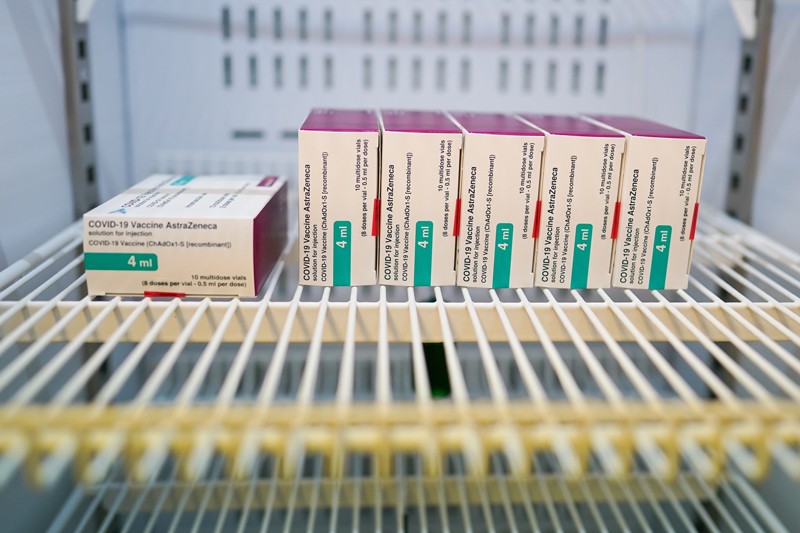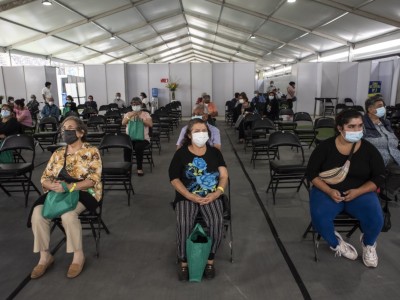The Oxford-AstraZeneca vaccine’s rollercoaster ride of a week might be coming to a welcome end. A key phase III clinical trial found the vaccine to be 76% effective at preventing COVID-19, the company announced on 25 March, two days after it was accused of misrepresenting interim results that reported a slightly higher efficacy figure of 79%.
Scientists hope the kerfuffle will not cause lasting damage to the vaccine’s long-term reputation, which could be bolstered by scrutiny — and likely approval — by US drug regulators.
“Overall it’s a win for the world,” says Ann Falsey, a vaccine scientist at the University of Rochester, New York and an investigator on the trial who co-developed its protocol. “The final story is the results for the final analysis are great. They look very similar to the interim analysis.”
The difference between 76% and 79% efficacy is “tiny, and to be expected with the number of cases analysed”, said Peter English, a retired consultant in communicable disease control, in a statement to the UK Science Media Centre.
‘Outdated’ information
The controversy started after AstraZeneca issued a press release on 22 March stating that a preliminary analysis had found the vaccine to be 79% effective, in a trial of more than 32,000 people in the United States, Chile and Peru.
Less than a day later, the US National Institute for Allergy and Infectious Disease (NIAID), which was overseeing the trial, issued its own release questioning AstraZeneca’s claims. NIAID said that members of the trial’s data safety monitoring board (DSMB) had expressed concerns that AstraZeneca could have used “outdated information” that “may have provided an incomplete view of the efficacy data”. In response, AstraZeneca said that the 79% figure was based on a planned analysis in mid-February, and that it would issue final results soon.
Those results aren’t all that different to the interim ones, scientists say. The 76% efficacy estimate was based on 190 COVID-19 cases in trial participants, compared to 141 in the interim analysis. AstraZeneca’s statement did not specify how many cases occurred in participants who were given a placebo, compared to those who were given the vaccine – a figure researchers hoped to see – but it did release other details.
The company clarified that the most recent figures were estimated 15 days or more after participants received their second dose of the vaccine, and were consistent across all age-groups including people aged 65 years and older. None of the vaccinated participants developed severe disease or were hospitalised.
But an additional 14 cases still have to be confirmed, which means that the overall estimates on how well the vaccine protects against COVID-19 could change slightly. If any of these unconfirmed cases are in the vaccine group, and are classified as severe, the estimate for the vaccine’s efficacy at preventing severe disease and hospitalisation – which is currently 100% – could change significantly because it is based on just eight cases, says Hilda Bastian, an independent scientist who studies evidence-based medicine in Victoria, Australia.
Questions remain
Eric Topol, a physician-scientist and director of the Scripps Research Translational Institute in La Jolla, California, says he’s relieved that there was little difference in the efficacy figure between the interim and near-final trial results. But he still has questions: What happened with the DSMB and NIAID, and why did AstraZeneca publically report interim data, when final results were so close to hand? He doesn’t think the 14 unconfirmed cases will make much of a difference, but says they should have been resolved by now.
AstraZeneca says it plans to file for emergency-use authorization for the vaccine from the US Food and Drug Administration, and submit their trial analysis for peer-review and publication in a journal in the coming weeks.
Topol expects that the FDA — which reanalyses raw trial data — will confirm AstraZeneca’s results and give the vaccine an emergency use authorization. The agency’s endorsement will “will go a good way to restoring confidence”, Falsey adds. “It looks to be safe, efficacious, and it's a good vaccine.”
In the future, scientists hope that the vaccine will be judged on its merits — rather than on controversies over press releases. “My view of how well this vaccine works is better today than it was last week,” says Bastian. “In the end, it is the vaccine that matters, not what you think of the company.”








 个人中心
个人中心 我的培训班
我的培训班 反馈
反馈
















Comments
Something to say?
Log in or Sign up for free